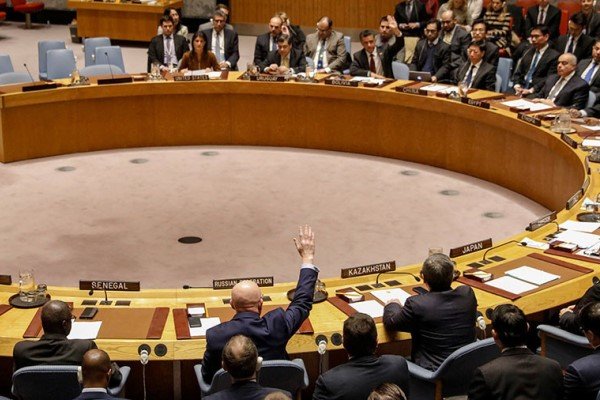European states: Trump’s on al-Quds ‘unhelpful’

Britain, France, Germany, Sweden and Italy called on the United States on Friday to put forward detailed proposals for peace between Israel and the Palestinians and described as “unhelpful” a decision by President Donald Trump to recognize al-Quds (Jerusalem) as Israel’s capital, Reuters reported.
Trump’s reversal of decades of U.S. policy on Wednesday sparked a Palestinian “day of rage” on Friday. Thousands of Palestinians demonstrated, scores were hurt and two were killed in clashes with Israeli troops.
Amid anger in the Arab world and concern among Washington’s Western allies, the United Nations Security Council met on Friday at the request of eight of the 15 members - Britain, France, Sweden, Bolivia, Uruguay, Italy, Senegal and Egypt.
In a joint statement after the meeting, Britain, France, Germany, Sweden and Italy said the U.S. decision, which includes plans to move the U.S. embassy to Jerusalem from Tel Aviv, was “unhelpful in terms of prospects for peace in the region.”
Egypt’s UN Ambassador Amr Aboulatta said the U.S. decision would have “a grave, negative impact” on the peace process.
United Nations Middle East envoy Nickolay Mladenov warned there was a risk of violent escalation.
“There is a serious risk today that we may see a chain of unilateral actions, which can only push us further away from achieving our shared goal of peace,” Mladenov told the UN Security Council.
Israel considers all of Jerusalem to be its capital. Palestinians want the eastern part of the city as the capital of a future independent state of their own.
The world considers East Jerusalem, which Israel annexed after capturing it in the 1967 Middle East War, to be occupied territory, including the Old City, home to sites considered holy to Muslims, Jews and Christians alike.
A UN Security Council resolution adopted in December last year “underlines that it will not recognize any changes to the 4 June 1967 lines, including with regard to Jerusalem, other than those agreed by the parties through negotiations.”
That resolution was approved with 14 votes in favor and an abstention by former U.S. President Barack Obama’s administration, which defied heavy pressure from long-time ally Israel and Trump, who was then president-elect, for Washington to wield its veto.
